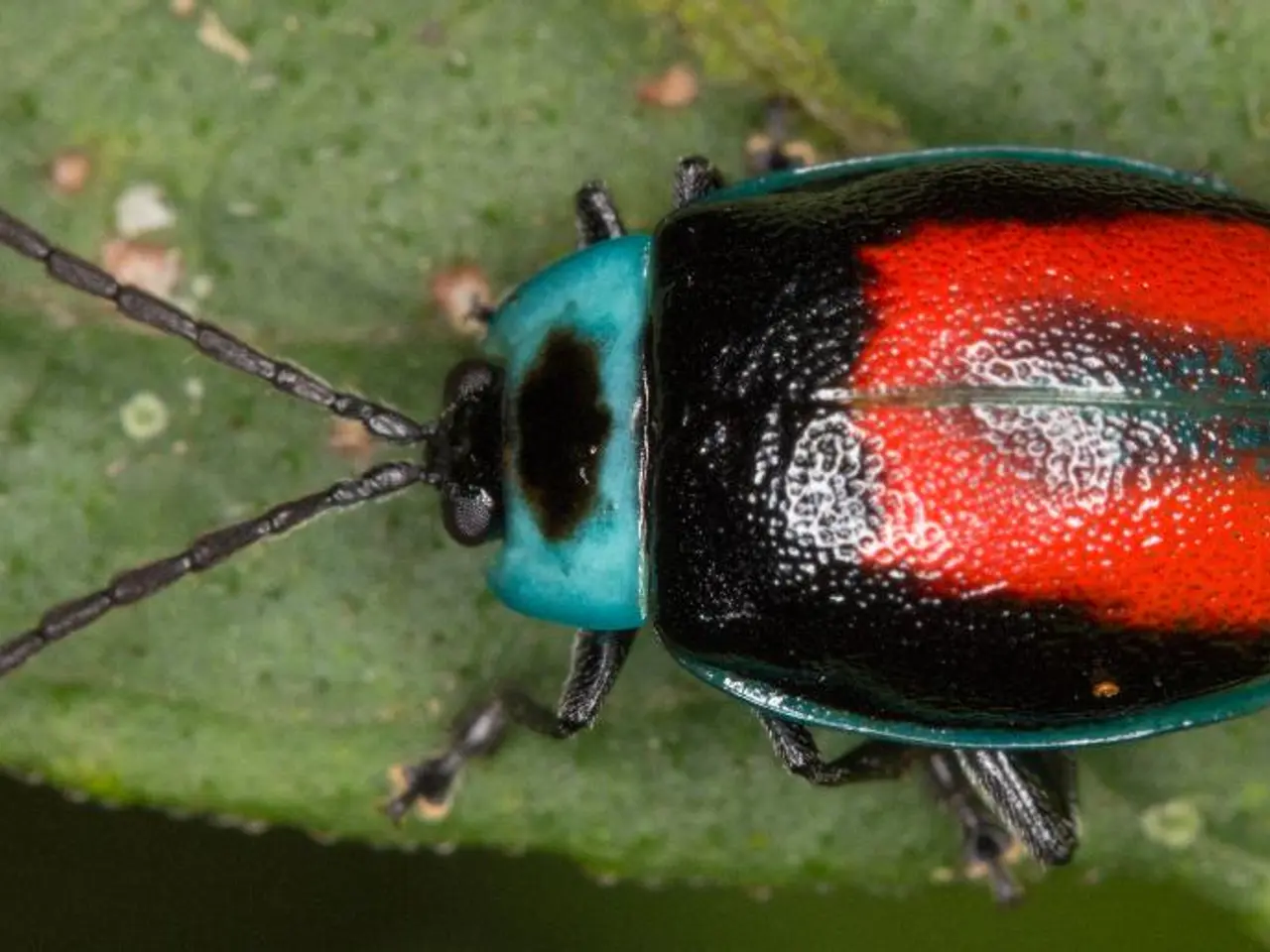Effective Organic Pest Management Techniques for Your Garden
In the picturesque landscapes of rural gardens, a shift towards organic pest control methods is gaining popularity. This approach, which combines natural remedies, beneficial insects, and companion planting, offers a sustainable and eco-friendly alternative to chemical-based solutions.
Natural Remedies -----------------
The arsenal of organic pest control includes a variety of substances derived from nature. Neem oil, extracted from neem tree seeds, is a potent insecticide that disrupts pest life cycles by repelling insects and inhibiting their growth, particularly soft-bodied pests like aphids and whiteflies. Insecticidal soaps, another natural solution, work by blocking the pores of soft-bodied insects, causing dehydration and death, and are useful for pests such as aphids and mealybugs. Diatomaceous earth, a natural powder, physically damages the exoskeleton of insects, leading to their demise, and is effective against a variety of crawling insects.
Beneficial Insects -------------------
Nature's own pest controllers, such as ladybugs (also known as ladybirds), parasitic wasps, nematodes, and hoverflies, play a crucial role in organic pest control. Ladybugs are voracious predators of aphids and other small pests, while parasitic wasps lay eggs inside pest insects, helping to reduce pest populations organically. Nematodes, microscopic worms introduced into the soil, target soil-dwelling pests without disrupting the ecosystem, and hoverflies' larvae feed on aphids and other garden pests.
Companion Planting Techniques ------------------------------
Strategic planting of certain species can naturally repel pests or attract beneficial insects. For example, marigolds deter nematodes and some insects, basil repels mosquitoes and flies, and nasturtiums attract aphids away from other plants. Companion planting also involves layering of crops to create physical and olfactory barriers against pests, enhancing biodiversity and soil health.
Integrated Pest Management (IPM) ----------------------------------
A key sustainable approach, Integrated Pest Management (IPM) combines monitoring pest populations, using biological controls, and applying organic treatments only when necessary. IPM prioritizes early detection and targeted interventions, reducing the need for frequent applications and preventing pest resistance.
Embracing the Organic Approach -------------------------------
By adopting these organic pest control methods, rural gardeners can effectively control pests without harmful chemicals, fostering a healthy and resilient garden ecosystem. Beans and corn provide support and nitrogen to each other in companion planting, while mulching with organic materials like leaves or straw helps retain moisture and keeps weeds at bay. Native plants require less water and are more resistant to local pests, and adding organic matter to the soil increases nutrients, encourages microorganisms, and supports natural pest control.
In conclusion, organic pest control methods offer a sustainable, eco-friendly, and cost-effective solution for rural gardeners. By promoting biodiversity, reducing chemical use, and protecting beneficial insects and wildlife, these methods contribute to a healthier and more resilient garden ecosystem.
In the context of home-and-garden, the lifestyle of rural gardeners can be enhanced by growing vegetables organically using natural remedies such as neem oil, insecticidal soaps, and diatomaceous earth, which are derived from vegetable-based sources. Additionally, integrating beneficial insects like ladybugs, parasitic wasps, nematodes, and hoverflies can aid in pest control, enhancing the overall home-and-garden ecosystem.




